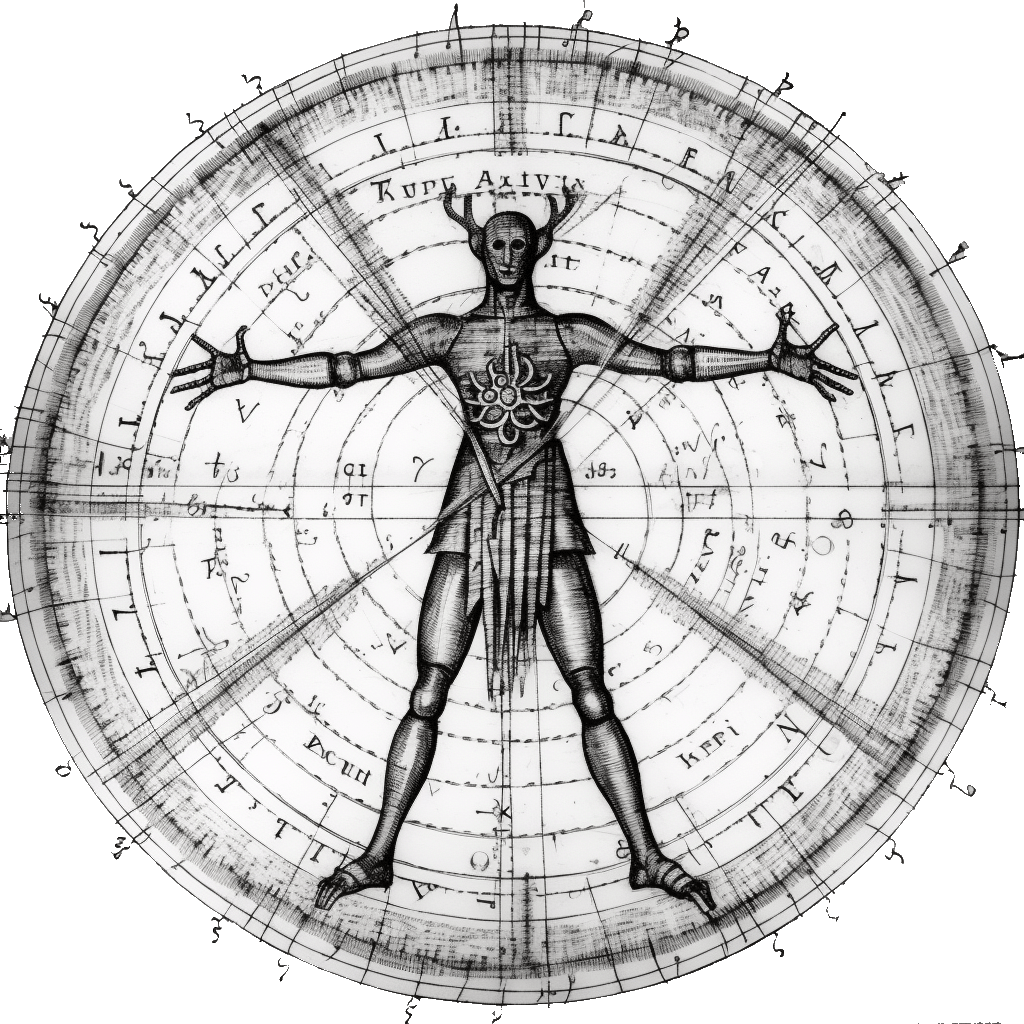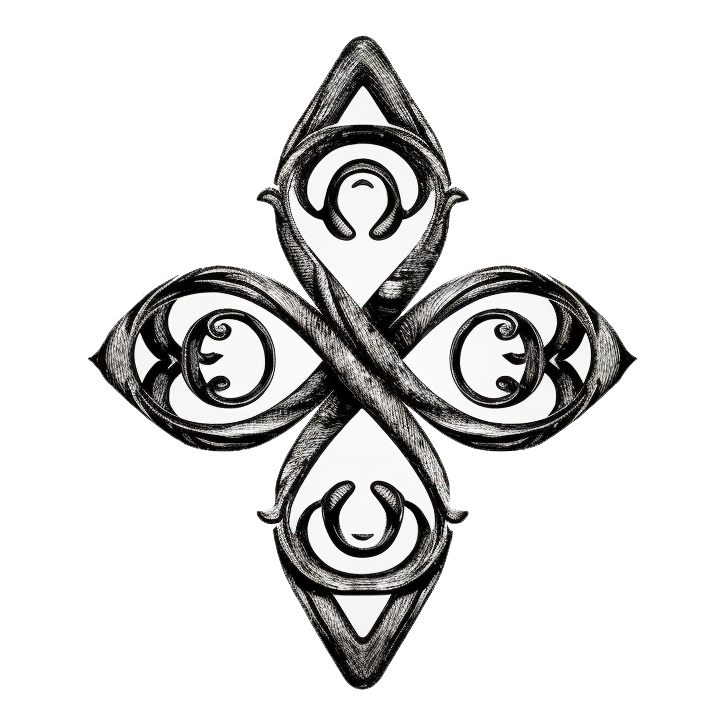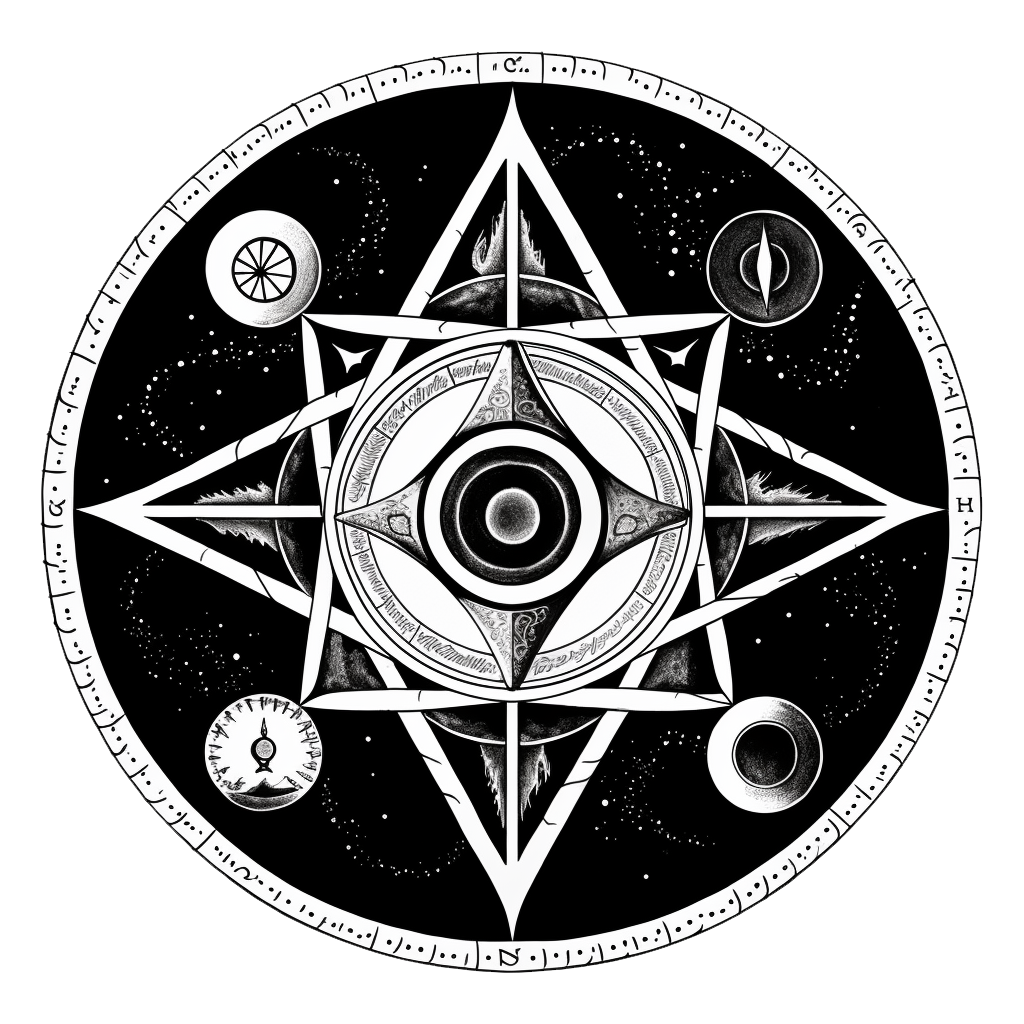Characters are the catalysts of the path and the conduit between the players and the setting. They are one of the essential pillars of any scenario. Characters serve as the fulcrum for Augurs in uncovering a variety of meaningful tales.
In settings using the APC System players use the core mechanic to determine essential character elements that will help measure the action tests of any scenario. The Augurs refer to these elements as character attributes.
Attributes help Augurs approximate the unique facets of each character by utilizing a metric of physical and mental qualities on a generalized scale that can be determined by rolling [3d6]. In this metric, characters must have four physical attributes and four mental attributes, each determined with a [3d6] roll.
It may depend on the specific setting how these physical and mental attributes are realized. The only core element of the path is that each of the eight total attributes should be determined with the dice mechanic in order to bring that character to life within the setting. Augurs have found, however, that the most common organization of attributes for characters adheres to the following structure:
| Strength (STR) | One’s facility for physical exertion and active force |
| Endurance (END) | One’s physical hardiness, stamina, or fortitude |
| Agility (AGI) | One’s speed, balance, and flexibility |
| Accuracy (ACC) | One’s intricate dexterity and finesse |
| Intellect (INT) | One’s mental acuity for order and pattern recognition |
| Wisdom (WIS) | One’s collective of knowledge and social poise |
| Perception (PER) | One’s observation and awareness of surroundings |
| Charisma (CHA) | One’s social presence, charm, and personal vibrance |
In the APC System, players must roll [3d6] for each attribute in order to bring a character’s initial qualities to life. In respecting the role that the dice mechanic plays, Augurs insist that players never re-roll individual attributes to fit their own design. During the generation of attributes for a character, if the generated attributes do not seem fitting for one’s vision, abandon that character and start anew, rolling each attribute in order from physical to mental.
Initially, the generating of attributes will provide the player with scores for each attribute, with values that range from 3 to 18. These scores may be adjusted as a character continues to be nuanced within any specific setting, raising or lowering the attribute score based on circumstance. A game’s compendium will guide players through adjustments and nuances. Once the character’s attribute scores are established and fully adjusted to fit that specific character, each attribute score serves the player with a potential bonus or penalty to use during action tests.
| Attribute Score | Bonus / Penalty | Description |
| ≥ 19 | +5 | Incredible |
| 18 | +4 | Exceptional |
| 16-17 | +3 | High |
| 14-15 | +2 | Above Average |
| 12-13 | +1 | Fair |
| 10-11 | +0 | Average |
| 8-9 | -1 | Substandard |
| 6-7 | -2 | Mediocre |
| 4-5 | -3 | Low |
| 3 | -4 | Shoddy |
| ≤ 2 | -5 | Awful |
The attribute spread for a character should look something like the following chart. Players will use the bonus or penalty connected to a character’s attribute when performing action tests using that attribute as its source. See “Source Attributes and Adjustments” for more details.
| Attribute | Initial Score | Adjustments | Final Score | Bonus / Penalty |
| STR | 9 | +1 | 10 | +0 |
| END | 12 | +1 | 13 | +1 |
| AGI | 8 | – | 8 | -1 |
| ACC | 10 | – | 10 | +0 |
| INT | 14 | +1 | 15 | +2 |
| WIS | 13 | -2 | 11 | +0 |
| PER | 11 | – | 11 | +0 |
| CHA | 9 | -2, -1 | 6 | -2 |
A character’s attributes serve as the primary element of their presence and actions within a setting. Additional elements of a character can be guided by the Augur’s vision and remain specific to the compendium of the setting itself. These elements should, however, by design offer players with a foundation in the following aspects of a character.

Characteristics
One’s characteristics refer to their general appearance, countenance, and features that describe how they physically exist in the world setting. Augurs may envision settings in which characters may inhabit a variety of physical forms. Characteristics provide players and the narrator with the shape for how to inhabit the reality of the setting, from physical features, to style, to quirks and other unique aspects a character may embody. The game’s compendium should give players a foundation for what characteristics are possible within a setting, but also allow players to choose from those possibilities if they so wish.
Origins
One’s origins offer players with a sense of a character’s belonging, community, and connections, and help participants immerse into the reality of the setting. Augurs may craft histories and lineages with intricate cultural detail. Origins provide players with a sense of where they come from and where they are heading in the game world. The game’s compendium should give players a strong foundation for how a character’s origins impact their sense of belonging and social participation, as well as any lasting connections that affect how they may show up in the game setting’s scenarios. Often one’s motivations will extend from their origins, and Augurs typically will represent character motivations here.
Profile
One’s profile refers to a character’s approach toward life and their specialized experiences that contribute to a complex personality. Much like with attributes, Augurs approximate the unique facets of each character’s profile by utilizing a metric of intersections between one’s primary attribute (their highest attribute score) and their specialized experiences. The most common form of expressing a character’s profile emerges from the intersection of eight and eight. Eight is a sacred number among the Order.

In established game compendiums, Augurs use the term aptitude to express a character’s primary attribute and how they show up in the setting. Each aptitude has its own unique and setting-specific aptitude description, and contributes various training bonuses to the character as they start out in world. As there are eight character attributes, there are eight aptitudes for one’s profile. The aptitude describes how a character approaches challenges in life, and the training bonuses connected to an aptitude should reflect how a character apt in that attribute will have an easier time approaching obstacles through that path.
Similarly, Augurs use the term expertise to express a character’s specialized training and experiences. An expertise may encompass numerous specific activities in which a character will be particularly proficient. In established game compendiums, an expertise serves as a category of unique tasks that are crucial to the specialized knowledge of the setting. Examples include building, healing, fighting, or influencing. Whatever the setting calls for is at the discretion of the Augur; the only mandate of the APC System is that a character’s expertise provides specialized training bonuses that nuances their unique abilities, through which players can contribute to the character’s development in game play.
At the intersection of a character’s aptitude and expertise, Augurs localize a character’s vocation. Also called profession or career, the vocation is the nuanced metric for a character’s profile. As an example, a builder with an aptitude for intellect approaches their vocation differently than one with an aptitude for strength. In established game compendiums, these intersections of aptitude and expertise lead to specific vocations that comprise the many varied tasks with which characters busy themselves in the setting. The Augur will envision setting-specific vocations that emerge from the logical intersections of eight aptitudes and eight expertise. Descriptions of vocations also contribute greatly to a player’s sense of how their character embodies their many abilities within the setting.
Finally, as a measure of the character’s profile, the Augur may choose to denote the term of time a character has spent in their expertise, as well as any obstacles the player may choose to employ as they evoke the character into the setting. In established game compendiums, all of these aspects of a character’s identity are linked to their profile.
Trials
The last element that guides Augurs in realizing characters within a setting comes in the form of trials. A well established character will have encountered some trial or test of their existence within the game world. Trials allow the player to embody a character’s sense of survival and presence within the setting. The trials a character must endure to enter the setting must emerge from the elements of the game setting. They are guided by the vision of the Augur and can range from simple to complex at the Augur’s discretion. The foundational element of trials is that they provide a meaningful accomplishment for the player who guides the character into being. The measure of a good and meaningful trial is one that fills a player with wonder and risk, and will become the impetus for a deeply held player-character connection.
